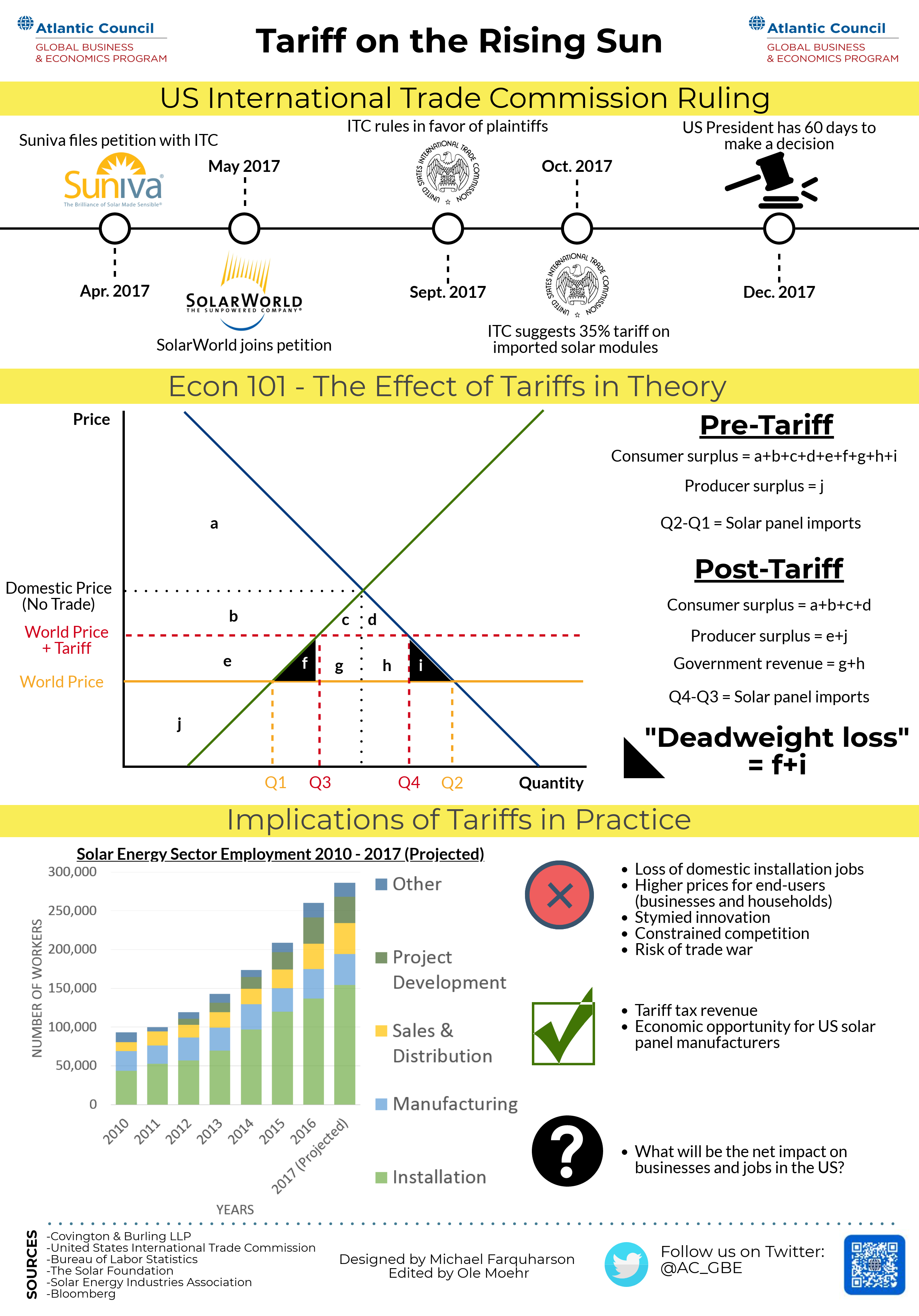In April of this year, Suniva, a Chinese-owned, US-based solar manufacturer filed a rarely-used Section 201 petition with the US International Trade Commission (ITC), requesting the imposition of minimum prices for solar module imports into the United States. In May, German-based SolarWorld joined Suniva’s petition, and in September, the ITC ruled in favor of the plaintiffs, ultimately recommending up to a 35 percent tariff on imported solar modules.
In a Section 201 petition, the ITC must consider whether an article, imported, “in such increased quantities,” has caused “serious injury” to the domestic industry. The burden of proof is therefore lower and more ambiguous than in typical anti-dumping cases, which require proof of unfair or illegal practices on behalf of the foreign competitor.
According to the latest ten-year forecast from the Bureau of Labor Statistics (BLS), solar photovoltaic installer is projected to be the fastest growing occupation in the US, with a projected growth rate of 105 percent. Since 2010, solar jobs have skyrocketed, almost tripling to employ over 260,000 Americans in 2016. Installers represent the majority of jobs in the solar industry—accounting for 52 percent of all jobs in the sector—manufacturers on the other hand, represent just 15 percent of jobs in the sector.


The Solar Energy Industries Association (SEIA), a national solar trade association, estimates that around one-third of the current American solar labor force could lose their jobs in the coming year if protections are imposed. US solar installations have risen sharply, up nine-fold in just five years. Low-cost imports have played a large role in this increase and restricting the flow will inevitably impact the growth of the domestic solar job market. Since 2010, installed photovoltaic costs have plummeted by over 55 percent for residential installations, over 70 percent for non-residential and over 75 percent for utility-scale projects.
The solar installation sector is dominated by small businesses. More than half of all installers in the US have 10 or fewer employees. The implementation of a tariff might stunt the growth of this rapidly growing industry and hurt small businesses in particular. The ITC solar case is also an important bellwether of the Trump administration’s willingness to use protectionist tools and follow up on its campaign rhetoric on trade.